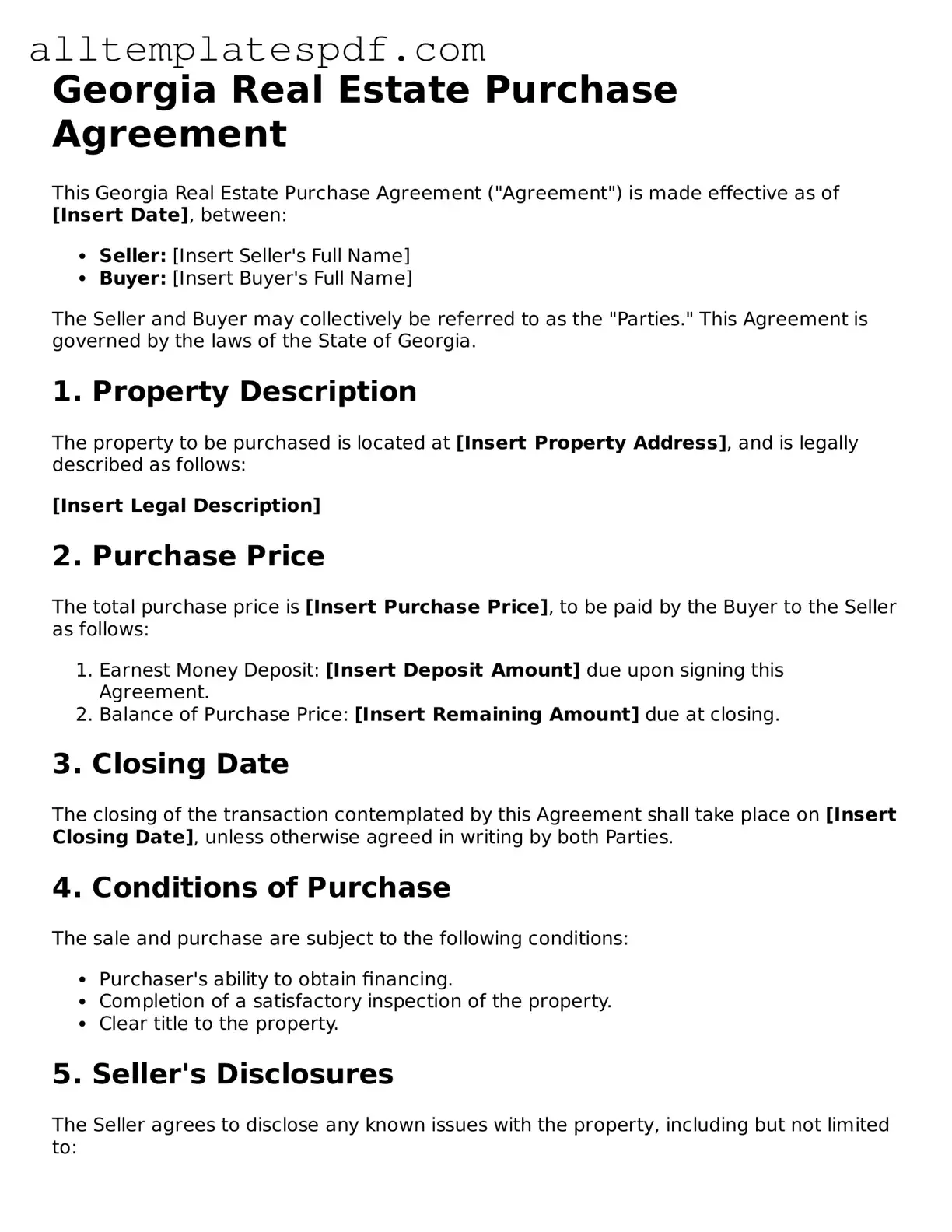Blank Real Estate Purchase Agreement Template for the State of Georgia
The Georgia Real Estate Purchase Agreement form is a legally binding document that outlines the terms and conditions of a property sale in Georgia. This agreement serves as a critical tool for both buyers and sellers, ensuring that each party understands their rights and responsibilities throughout the transaction. To get started on your real estate journey, fill out the form by clicking the button below.
Open Editor

Blank Real Estate Purchase Agreement Template for the State of Georgia
Open Editor
Fast and easy form completion
Complete Real Estate Purchase Agreement digitally — fast and easy.
Open Editor
or
↓ Real Estate Purchase Agreement PDF Form
